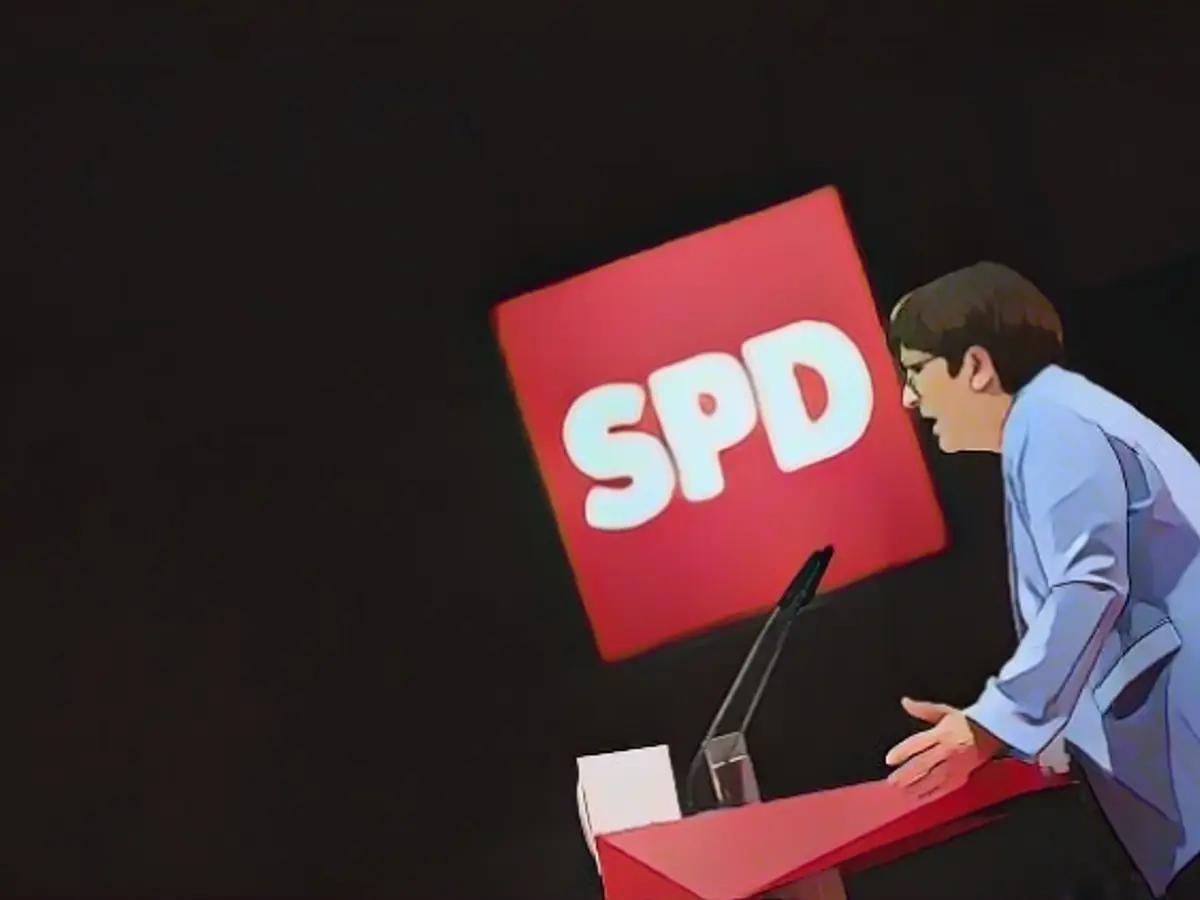Esken calls CDU under Merz "highly dangerous"
At the beginning of December, SPD leader Esken said that the CDU/CSU was "joining forces with the AfD" against the traffic light. CDU chairman Merz calls her statements "scurrilous" and "dishonorable". Nevertheless, the Social Democrat follows up.
SPD leader Saskia Esken has described the CDU under its chairman Friedrich Merz as "highly dangerous" for social cohesion and accused it of using the language of the AfD. "Friedrich Merz's CDU is developing in a way that I find alarming for a party that has borne responsibility for many years," said Esken. It is conducting debates, for example on migration or the citizens' income, in a way that pits people against each other.
"This is extremely dangerous for political culture and social cohesion," said Esken. "It is just as dangerous when the CDU and CSU introduce terms into the debate that were previously used exclusively by the AfD." This concerns the devaluation of the government, but also the devaluation of people. "I'm thinking of the insinuation of "social tourism", the "little pashas" or other linguistic slurs. That kind of thing is poison for our country."
Esken emphasized that this was precisely why she had already addressed clear words to Merz at the SPD party conference. At the beginning of December, the SPD leader had accused the CDU and CSU of "joining the AfD in agitating against the traffic light". Merz had described the choice of words as "cutting off honor" and "scurrilous". Esken merely said that she "took note of how intensively he (Merz) followed our party conference".
"Populist attacks" in foreign policy
However, Esken did not retract any of her accusations in the dpa interview. On the contrary, she also accused the CDU/CSU of behaving in a way that is damaging to the state in foreign policy: "The way in which fundamental opposition is being pursued here, for example the way in which the government is repeatedly presented to the public in an exceptional foreign policy situation such as Putin's attack on Ukraine as hesitant and dithering and not (as) responsible and prudent: I consider that irresponsible in terms of state policy, and it damages our country."
In the past, it was taken for granted that the opposition and government would stand together on foreign policy issues. "The CDU seems to have lost this part of our political culture. No government before this one had to put up with such populist attacks in such a crisis situation." The SPD leader pointed out that "at the same time, leaders from all over the world, such as the US President or the Ukrainian President himself, attest to the fact that the Federal Chancellor stands by their side and that he is able to forge international alliances that no one else would have been able to achieve".
Nevertheless, offer of cooperation to Merz
Esken nevertheless offered to cooperate with the CDU/CSU. "In principle, we are always prepared to work together with a constructive opposition." However, the SPD leader criticized Merz for breaking off cooperation with the traffic light government on the issue of migration. "Mr Merz should appreciate the fact that compromises are being made and not repeatedly demand a willingness to work together and then cancel it again," she said. "On our side and on the government's side in particular, it is still there."
At the beginning of September, Chancellor Olaf Scholz proposed a Germany pact to the CDU/CSU to modernize the country and also met with Merz to discuss the issue of migration. However, following the agreement between the federal and state governments on measures against irregular migration, Merz declared cooperation on the issue to be over at the beginning of November. He explained that Scholz had refused to set up a joint government and CDU/CSU working group to manage immigration. "In my view, this puts an end to the Germany Pact on migration."
Read also:
- Year of climate records: extreme is the new normal
- Precautionary arrests show Islamist terror threat
- UN vote urges Israel to ceasefire
- SPD rules out budget resolution before the end of the year
Saskia Esken, the SPD leader, expressed concern about Friedrich Merz's CDU, stating that they are adopting the rhetoric of the far-right AfD, which she finds highly dangerous for social cohesion. She criticized their divisive approach to issues like migration and citizens' income, which she believes pits people against each other.
In a foreign policy context, Esken accused the CDU/CSU of presenting the government as hesitant and irresponsible during the Russia-Ukraine crisis, a move she deemed irresponsible and damaging to Germany's international standing. Despite these criticisms, Esken extended an offer of cooperation to the CDU/CSU, expressing her party's willingness to work with a constructive opposition.
Friedrich Merz, the CDU chairman, had earlier described Esken's statements about his party joining forces with the AfD as scurrilous and dishonorable. Despite this, Esken maintained that she had taken note of Merz's response at the SPD party conference.
Source: www.ntv.de








